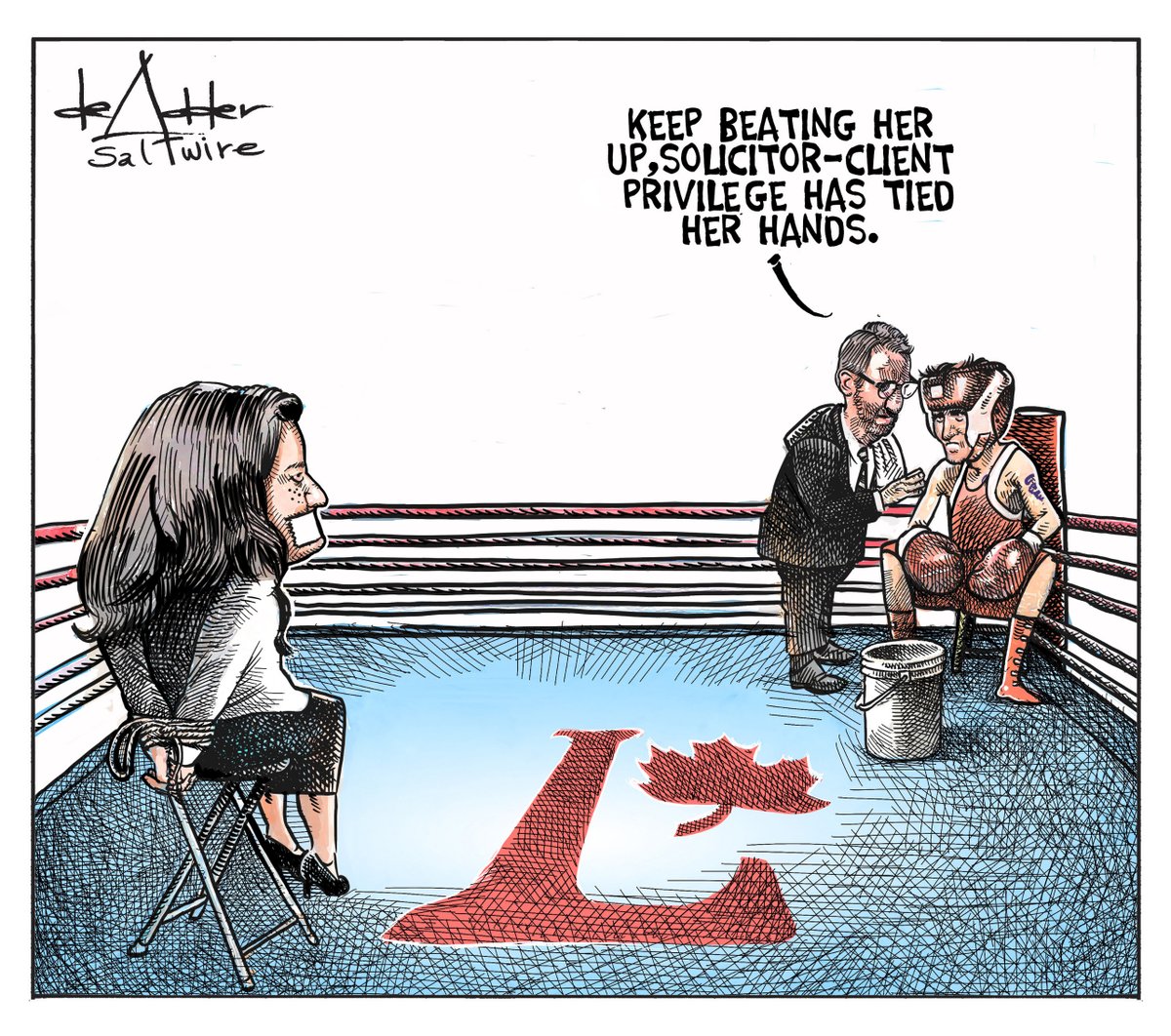
Opposing petitions on Change.org
Mehta fiasco common but avoidable
Conversations between fair-minded people about Rick Mehta tend to begin with something like: “I don’t know who’s right, but I do know … “
Unfortunately, even what we “do know” is wrong or not enough. All I’m certain of is that he was fired by Acadia University Aug. 31 amid a firestorm of accusation and counter-accusation.
The dispute, as others have noted, is a “rabbit hole.” We’ll never know who’s right or wrong. For sure, Mehta’s detractors and advocates (yes, he has some) will never persuade each other of anything.
But there is a way to avoid more rabbit holes: invite Kenneth Westhues, professor emeritus at the University of Waterloo, to lecture on “mobbing” or, in this case, “mobbing in academe.” And while we’re at it, have him speak to non-academic employers as well. Westhues is a leading scholar on mobbing, a phenomenon first identified in the late 1980s by Dr. Heinz Leymann, of the University of Stockholm.
And let me assure you: if Mehta is a victim of the academic form of mobbing, he has plenty of company.
I contacted Westhues because the Mehta controversy was reminding me of two incidents in my own own worklife. Some time ago, a large, somewhat plump and naive young woman walked into a office of twenty-somethings next to the room where I worked. For reasons still lost on me, a single loudmouth in the group began attacking her at every opportunity. He publicly mocked her hair, her intelligence, her body, her words and, unbelievably, her name. Others joined in and soon her work-life was hell. I didn’t participate, but I didn’t intervene either. The pressure grew daily until she left. It was the cruellest psychological attack I’ve seen.
Much later, I saw a gang of office-workers attack someone whose only crime was a lack of support. A single person launched a whispering campaign and it spread like a brushfire. This time I was sure I had the authority to intervene, but I was wrong. There was blood in the water and dismissal quickly became the inevitable outcome. (Concerted, unrelenting attacks on someone’s competence tend to be self-validating.) The instigator, who should have been fired, was triumphant.
Here’s how Westhues describes the phenomenon: “Mobbing can be understood as the stressor to beat all stressors. It is an impassioned, collective campaign by co-workers to exclude, punish, and humiliate a targeted worker. Initiated most often by a person in a position of power or influence, mobbing is a desperate urge to crush and eliminate the target. The urge travels through the workplace like a virus, infecting one person after another. The target comes to be viewed as absolutely abhorrent, with no redeeming qualities, outside the circle of acceptance and respectability, deserving only of contempt. As the campaign proceeds, a steadily larger range of hostile ploys and communications comes to be seen as legitimate.”
Mehta’s dismissal letter, especially the last two sentences, is an unwitting illustration of Westhues’s definition. Its intensity, inflammatory language and length are unlike anything I’ve seen in a firing. Perhaps it’s the way academe does these things.
I asked Westhues if he thought Mehta was a victim of mobbing. He was aware of the dispute, but he takes on only three or four cases a year and wouldn’t offer an opinion without first studying every scrap of relevant information.
He did, however, direct me to the many resources on his website.
One is a list of 10 conditions that increase a professor’s vulnerability to mobbing in academe. I’ve highlighted the five that apply to Mehta:
• Foreign birth and upbringing, especially as signalled by a foreign accent;
✅ Being different from most colleagues in an elemental way (by sex, for instance, sexual orientation, skin color, ethnicity, class origin, or credentials);
✅ Belonging to a discipline with ambiguous standards and objectives, especially those (like music or literature) most affected by postmodern scholarship; Based on a Google search, Mehta’s discipline, psychology, is at least affected by postmodern scholarship.
• Working under a dean or other administrator in whom, as Nietzsche put it, “the impulse to punish is powerful”;
✅ An actual or contrived financial crunch in one’s academic unit (according to an African proverb, when the watering hole gets smaller, the animals get meaner). I can’t find any indication that Mehta’s department is having financial problems, but the university is. See CBC, $10.5M bailout for Acadia helps avoid ‘more difficult decisions’.
✅ Having opposed the candidate who ends up winning appointment as one’s dean or chair (thereby looking stupid, wicked, or crazy in the latter’s eyes); From Mehta’s Facebook Page: “In the early part of 2017, Acadia University was searching for its next President. On March 27, I submitted the concerns that I had with Dr. Ricketts being the next President of Acadia University in a letter that I submitted to the Presidential Search Committee. … Dr. Ricketts became the President of Acadia University.”
• Being a ratebuster, achieving so much success in teaching or research that colleagues’ envy is aroused;
✅ Publicly dissenting from politically correct ideas (meaning those held sacred by campus elites); Here’s some media boilerplate, courtesy of The Canadian Press: “The associate professor of psychology has been outspoken on a range of contentious issues. He has come under fire for saying multiculturalism is a scam, there’s no wage gap between men and women, and the Truth and Reconciliation Commission has created a victim narrative.”
• Defending a pariah in campus politics or the larger cultural arena;
• Blowing the whistle on or even having knowledge of serious wrongdoing by locally powerful workmates.
I told Westhues that Mehta seemed to be digging in his heels, or “doubling down,” on the issues that were causing him so much trouble. I asked if his seemingly irrational reaction could be the result of stress. His response surprised me: “Generally, a mobbing target is best advised to dig in heels and go for broke.”
Westhues said that once a mob has formed against a target, any sort of apology he or she may offer is likely to be misconstrued as an admission of serious wrongdoing or dismissed as insincere.
Mobbing can extend outside an academic institution (which is self-evident to people who’ve been following the Mehta story) and become “virtual mobbing.” Westhues cites a “very hostile” petition aginst Mehta as an example of that.
“I’ve not studied the petition in detail,” he writes, “but I have done so in the case of similar petitions and learned that many, even most of the signers know little or nothing about the facts of the case, just add their names as a means of what’s called now ‘virtue signalling,’ the conspicuous declaration of values they hold dear.”
Indeed, the very first signatory has no apparent association with Mehta: “… I honestly would boycott any classes with him if I still went there … ” (Emphasis added.)
If you read on you’ll find plenty more signatories who demonstrate no association with Mehta, but say some nasty things.
So, should we be pro- or anti-Mehta?
The answer is: we should be anti-mobbing.
Managers of all kinds looking for help with that could start with the Waterloo Anti-mobbing Instruments. And then look around Westhues’s website.
It might just keep you from falling down a rabbit hole.
-30-
44.668671
-63.619263





